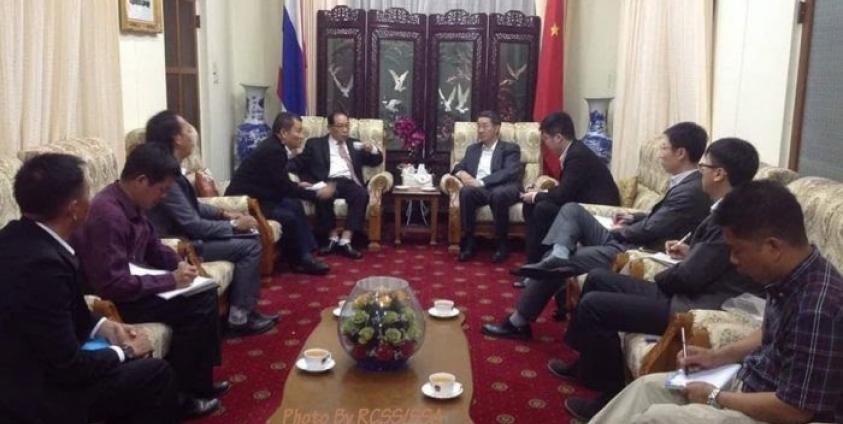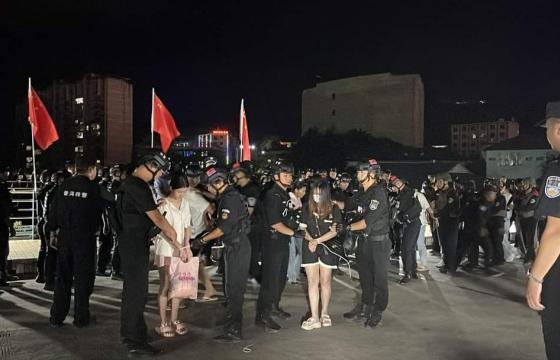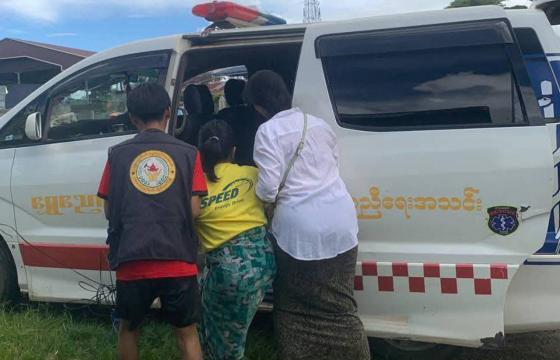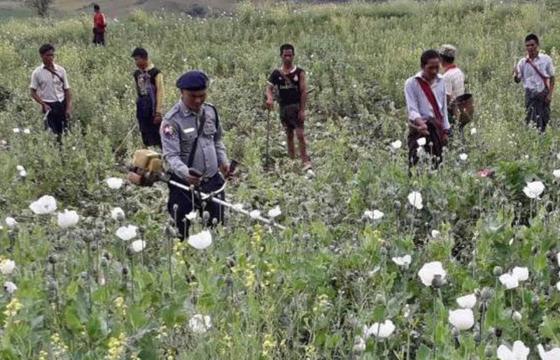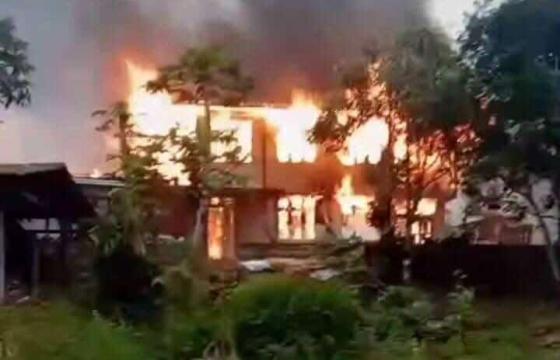SHAN speaks with an RCSS/SSA spokesperson about a recent meeting with Sun Guoxiang.
China’s Special Envoy on Asian Affairs Sun Guoxiang met with a delegation from the Restoration Council of Shan State/Shan State Army (RCSS/SSA) at the Consulate General of the People’s Republic of China in Chiang Mai, Thailand, on January 25. The meeting followed discussions with China-Burma border-based ethnic armed organization leaders in early January. SHAN reporter Sai Yawd Kham spoke with RCSS/SSA spokesperson and Secretary (2) Col. Sai Nguen about what was said in the meeting—the fourth of its kind.
What did you discuss in the meeting?
We mainly discussed the peace process. [Sun Guoxiang] met leaders of the UWSA, NDAA, MNDAA, TNLA and KIO on the China border before he came here. He also met the SSPP/SSA. He inquired about the situation surrounding the peace process; he would like to see it be successful. We exchanged facts and opinions in the meeting.
Did you discuss the issues causing deadlock between the Burmese government ethnic armed organizations?
He is so worried about it. He asked, ‘why did your organization temporarily stop attending the government’s official meetings? What is the situation?’ We explained that there have been many deadlocked issues that came up after the summit. We mainly explained three issues.
The first is the issue of non-secession. We would get permission to discuss self-determination after we accept the non-secession issue first. It’s not included in the NCA (Nationwide Ceasefire Agreement). It’s really difficult for us to accept it.
The second thing is the issue of ‘one army.’ Being one army means they intend to implement it for the current Burma Army. All ethnic armed organizations would have to operate under the Burma Army. We explained to him that we cannot accept it. In principle, we accept ‘one army, one nation.’ But we want a federal Union army in the future of our country. We have yet to discuss how to build a federal army in our country.
The last one what the government already said. They said they would complete the peace process by 2020, and at that time there will be only one army. Ethnic armed organizations will have to disarm. We explained to Mr. Sun Guoxiang that this is not an easy job, because there are over 20 armed organizations in the country. Only a few armed organizations have signed the NCA and many other organizations cannot sign the NCA. Therefore, it’s still impossible to discuss this issue with all ethnic armed organizations at the same time.
Mr. Sun Guoxiang asked us what our organization had prepared for a negotiation meeting. We explained to him that we have to go step by step. For instance, we, the RCSS/SSA, will discuss and negotiate with government and Burma Army in informal meetings until we develop mutual trust and understanding with transparency. Then we will step up for an all-inclusive meeting with the government. After that, if we get mutual trust and understanding, we will participate in formal meetings. We also exchange our opinions about why Joint Monitoring Committees meetings stopped.
Did he give suggestions to overcome these deadlocks?
He said that the Union of Burma borders China. If peace is restored in Burma, it will be a pleasure for China to see it. China wants a successful peace process in Burma. To reach an achievement, ethnic armed organizations cannot stand alone. They must negotiate and discuss with each other. They must discuss in a peaceful way. He also said that armed struggle is not a good way to solve problems.
Did you discuss about armed conflict in Shan State?
He did ask about conflict in Rakhine State as well as armed conflict in northern and southern Shan State. We explained that the situation in Rakhine state is a bit far from us, so we cannot comment on it. We explained to him why clashes occurred in northern and southern Shan state. We also explained to him why the two Shan forces are fighting each other. We also told him that only negotiations will solve the problems. He also offered his help.
How long was the meeting?
It took almost two hours. China was a witness when we signed the NCA, so we discussed how China could help us to overcome these deadlocks. [Sun Guoxiang] said he would try to communicate with all stakeholders. We also told him that it’s better if China can help stakeholders to have meetings with the government in both informal and formal settings. He is not only coming to see ethnic armed organization leaders but also he met the government and the Burma Army as well as the peace commission.
Do you think you achieved anything in this meeting?
We are getting more confidence and trust. Our ideas and their ideas are getting closer. We would like armed organizations and other organizations to go to study in China, such as about how their administration and government work for the development of their citizens.
Regarding this fourth meeting with the Chinese diplomat, what do you want to say?
China has played an important role in Myanmar’s peace process. China was a witness when we signed the NCA. [Sun Guoxiang] has a responsibility to help if there is a deadlock in the peace process.


